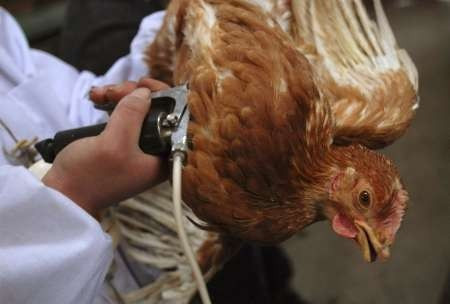Bird Flu Fears Mount with New Deaths, Mutant Virus Strain

Public health officials are warning that bird flu once again poses a growing threat, as the virus spreads across parts of Asia and has developed a dangerous new mutation.
Nearly a decade after swift action helped to thwart a potential epidemic, a possible vaccine-resistant mutant strain of the virus has already infiltrated parts of Vietnam and China. Fears of its spread are particularly acute in Cambodia, where eight people died of bird flu -- officially known as H5N1 -- this year.
There is a human H5N1 vaccine candidate that is a [World Health Organization] recommended vaccine ... But it doesn't confer full protection against the [new strain],University of Hong Kong virologist Malik Peiris told Reuters.
The United Nations Food and Agriculture Organization released a statement urging vigilance as the virus shows signs of a resurgence. Vietnam recently halted mandated innoculations of poultry, an oversight that may have allowed it to return.
United Nations chief veterinary officer Juan Lubroth said that shifting migratory patterns have brought the disease to previously unaffected countries such as Israel, the Palestinian territories, Bulgaria, Romania, Nepal and Mongolia. But he faulted the agricultural industry for facilitating its spread.
Wild birds may introduce the virus, but people's actions in poultry production and marketing spread it, Lubroth said.
There has also been a steady rise in the number of reported cases in poultry populations since 2008, reversing a sharp decline between 2003 and 2008. The World Health Organization estimates that there have been 331 human deaths from 565 confirmed bird flu cases since 2003, and the disease is still considered endemic in Bangladesh, China, Egypt, India, Indonesia and Vietnam.
The general departure from the progressive decline in 2004-2008 could mean that there will be a flare-up of H5N1 this fall and winter, with people unexpectedly finding the virus in their backyard, Lubroth said in a statement.
Humans rarely contract avian flu, but people who are widely exposed to infected poultry are at risk. In those cases when humans are sickened the symptoms can range from conjunctivitis to respiratory disease to death, according to the Centers for Disease Control and Prevention's Web site
© Copyright IBTimes 2024. All rights reserved.





















